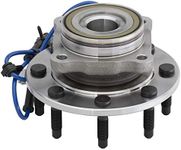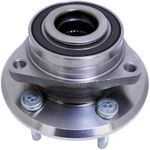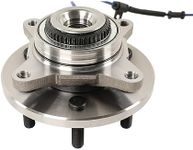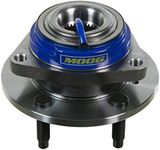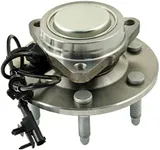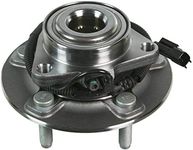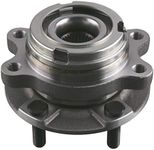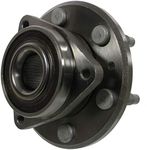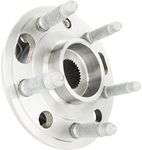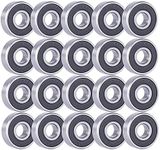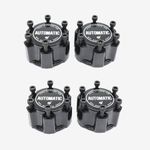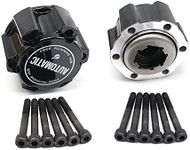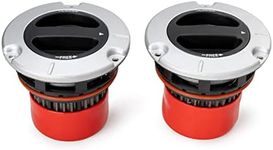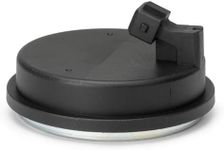Buying Guide for the Best Wheel Bearings
When it comes to picking the right wheel bearings for your vehicle, it's important to understand that these components play a crucial role in the smooth operation of your wheels. Wheel bearings reduce friction and allow your wheels to spin freely, which is essential for safe and efficient driving. Choosing the right wheel bearings involves considering several key specifications to ensure they meet your vehicle's requirements and driving conditions.Bearing TypeWheel bearings come in different types, such as ball bearings and roller bearings. Ball bearings are commonly used in most vehicles due to their ability to handle both radial and thrust loads. Roller bearings, on the other hand, are better suited for heavy-duty applications as they can handle higher radial loads. To pick the right type, consider the type of vehicle you have and the typical driving conditions. For everyday passenger cars, ball bearings are usually sufficient, while trucks and heavy-duty vehicles may benefit from roller bearings.
MaterialThe material of the wheel bearing affects its durability and performance. Common materials include steel and ceramic. Steel bearings are durable and cost-effective, making them a popular choice for most vehicles. Ceramic bearings, while more expensive, offer higher performance, reduced friction, and longer lifespan. If you drive in harsh conditions or require high performance, ceramic bearings might be worth the investment. For regular driving, steel bearings are typically adequate.
SealingSealed and unsealed bearings are the two main types of wheel bearing seals. Sealed bearings are protected from dirt, water, and other contaminants, which helps extend their lifespan and reduce maintenance. Unsealed bearings, while potentially offering less friction, require regular maintenance and are more susceptible to contamination. If you prefer low-maintenance and longer-lasting bearings, sealed bearings are the way to go. Unsealed bearings might be suitable for specific performance applications where regular maintenance is not an issue.
Load CapacityLoad capacity refers to the maximum weight a wheel bearing can support. This is crucial for ensuring the bearing can handle the weight of your vehicle and any additional loads. Bearings with higher load capacities are necessary for larger vehicles like trucks and SUVs, while smaller vehicles can use bearings with lower load capacities. To choose the right load capacity, check your vehicle's specifications and consider any additional weight from cargo or passengers.
FitmentFitment is about ensuring the wheel bearing is compatible with your vehicle's make, model, and year. Bearings come in various sizes and configurations, so it's essential to select one that fits your vehicle precisely. Incorrect fitment can lead to poor performance and potential damage. Always refer to your vehicle's manual or consult with a professional to ensure you get the correct fitment for your wheel bearings.
